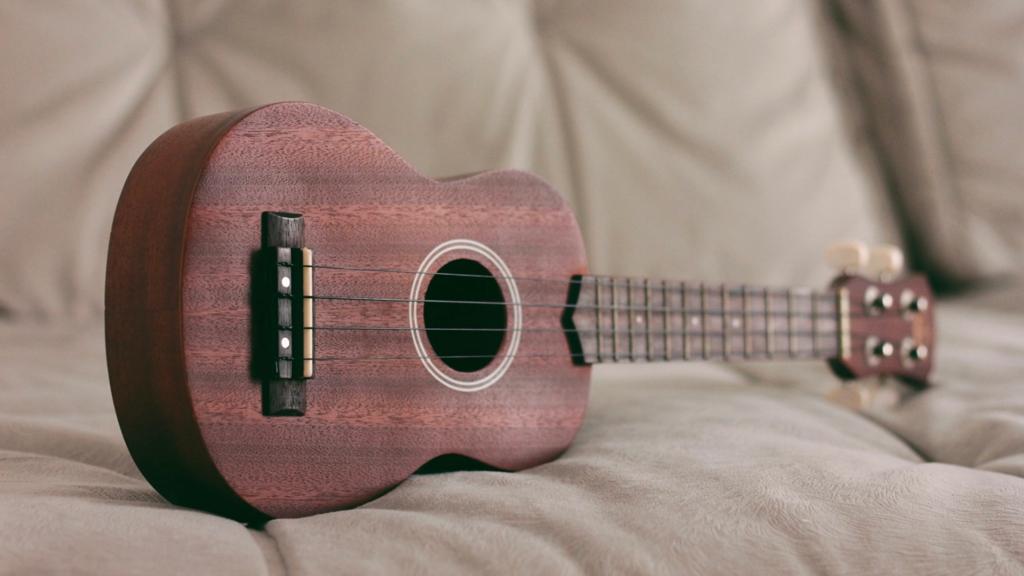
How to Choose a Ukulele: 10 Tips for Beginners
Ukuleles are known for their charming sound and are a great instrument to learn for beginners. With so many options available in the market, it can be challenging to decide which one to buy. From the size to the type of wood, there are many factors to consider when choosing a ukulele. In this article, we will share ten tips to help you select the right ukulele for your needs.

Determine Your Budget
One of the first things you should do before choosing a ukulele is to set a budget. Ukuleles come in various price ranges, from affordable to expensive. Decide how much you are willing to spend on a ukulele, and look for options within that range. Keep in mind that a higher price doesn’t always mean better quality, so do your research before making a purchase.
When you’re on a budget, it’s essential to be mindful of the quality of the instrument you’re buying. It’s okay to start with an entry-level model, but make sure it still sounds good and is playable. Avoid buying a cheap ukulele that is difficult to tune or has a low-quality sound.
Choose the Right Size
Ukuleles come in four main sizes: soprano, concert, tenor, and baritone. The soprano is the smallest and most common size, while the baritone is the largest. The size of the ukulele will impact the sound it produces and how comfortable it is to play. For example, a soprano ukulele produces a bright and cheerful sound, while a tenor ukulele produces a deeper and warmer tone.
When choosing the size, consider your playing style and physical attributes. If you have smaller hands, a soprano or concert ukulele may be easier to play. If you have larger hands, a tenor or baritone ukulele may be more comfortable.
Consider the Type of Wood
The type of wood used to make a ukulele can significantly impact its sound and overall quality. Ukuleles can be made from different types of wood, such as mahogany, koa, spruce, or cedar. Each type of wood has its unique characteristics, so it’s essential to research them before making a purchase.
For example, mahogany is a popular choice for ukuleles as it produces a warm and rich sound. Koa is another popular choice as it has a bright and sweet sound. Spruce and cedar are commonly used for the top of the ukulele as they produce a more robust and resonant sound.
Check the Tuning
Tuning is crucial when it comes to choosing a ukulele. A well-tuned ukulele will produce a clear and harmonious sound. Make sure to check the tuning before purchasing the instrument. You can use a tuner or an app to ensure that each string is in tune.
When you’re a beginner, you may want to consider buying a ukulele with geared tuners. These tuners are easier to use and hold the tuning better than friction tuners.
Check the Action
The action of a ukulele refers to the height of the strings from the fretboard. A low action means that the strings are closer to the fretboard, making it easier to play. A high action means that the strings are further from the fretboard, making it more challenging to play.
When testing a ukulele, make sure to check the action. The strings should be easy to press down and play without requiring too much effort. If the action is too high, it may be difficult to play chords and progressions, which can be frustrating for beginners.
If you’re buying a ukulele online, make sure to read reviews or contact the seller to ask about the action. Some ukuleles may require a setup to adjust the action, which can be an additional cost.
Check the Intonation
Intonation refers to the accuracy of the notes produced when playing up and down the fretboard. A ukulele with good intonation will produce clear and in-tune notes across the fretboard. Poor intonation can make playing certain chords or melodies sound out of tune.
To check the intonation, play the same note on different frets and listen to see if the notes sound in tune. If the notes sound off, it may be an issue with the intonation. You can also use a tuner or an app to check the intonation.
Test the Sound
The sound of the ukulele is one of the most important factors to consider when choosing an instrument. It’s essential to test the sound by playing different chords, melodies, and styles. Listen to the tone and resonance of the ukulele and see if it matches your preference.
When testing the sound, consider the environment you’re in. A noisy or echoey room can affect the sound of the ukulele. If possible, try playing the ukulele in a quiet and acoustic-friendly environment.
Look for a Warranty
When buying a ukulele, it’s important to look for a warranty. A warranty can provide you with protection against defects and issues with the instrument. It’s also a sign of confidence from the manufacturer in their product.
Check the details of the warranty, such as the length of coverage and what it covers. Some warranties may only cover defects, while others may cover damage caused by regular use.
Get Recommendations
If you’re a beginner, it can be helpful to get recommendations from more experienced players or music instructors. They can provide you with valuable insights into the different types of ukuleles and what to look for when buying one.
You can also join ukulele communities online or in-person to ask for recommendations and get feedback from other players.
Buy from a Reputable Dealer
Lastly, it’s important to buy from a reputable dealer. A reputable dealer can provide you with high-quality instruments and reliable customer service. They can also help you with any issues or questions you may have.
Do your research and read reviews of different dealers before making a purchase. Avoid buying from a dealer that has a lot of negative reviews or a history of providing low-quality instruments.
Conclusion
Choosing a ukulele can be a fun and exciting experience. By following these ten tips, you can select the right ukulele for your needs and preferences. Remember to consider factors such as size, wood, tuning, action, intonation, sound, warranty, recommendations, and dealer when making your purchase. With the right ukulele, you can enjoy playing beautiful music and exploring the world of music.











